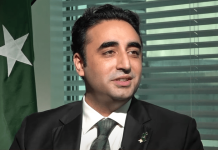Staff Report
ISLAMABAD: In a major setback, no bid was received for setting up a 600-megawatt solar power project at Muzaffargarh despite multiple revisions in incentives and extensions in deadlines given by the Private Power & Infrastructure Board (PPIB) — a one-window power sector entity of the federal government.
This was the first pilot project for the acquisition of renewable energy through international competitive bidding (ICB) in line with the projections under the long-term Indicative Generation Capacity Expansion Plan (IGCEP). Multiple rounds of bidding were held and revisions in incentives were made since late 2022 under the already approved Framework Guidelines for Fast-Track Solar PV Initiatives 2022. The last one-month extension in deadline was allowed on December 10 but not a single investor submitted a bid by Jan 11 deadline, confirmed an official of the PPIB.
He said no more extension or corrigendum was being considered for now and attributed the poor response to overall political uncertainty, macroeconomic conditions, country credit rating and the power sector’s risk factor because of the huge pile-up of payables to the private sector and the circular debt.
Early last month, the PPIB extended the bidding deadline asking the investors to come up with proposals and tariffs for setting up of 600MW Solar PV project at Kot Addu, Muzaffargarh on the build, own, operate and transfer (BOOT) basis for a term of 25 years.
The bids were to be evaluated based on the lowest tariff and project completion timeline of about 26 months.
The government had approved in September 2022 a fast-track plan for the development of utility-scale large solar projects through private sector investment and was part of a major initiative of the federal government for the induction of about 10,000MW solar energy for cutting down carbon footprint, reducing foreign exchange exposure and bringing down overall electricity tariffs.
The bidding process for the 600MW project was launched immediately with the allocation of land and other facilities. Bidders did not show up for the first round ending May 31, 2023 under the benchmark tariff regime through reverse tariff competition against a benchmark rate of 3.4 US cents per unit. At the time, the PPIB claimed that the lower poor bidder response was because of the low project cost benchmarked by the regulator.
The benchmark tariff was thus removed by the government on the desire of the PPIB which also allowed investors higher interest rates and lucrative indexations against exchange rate variations besides longer project implementation schedules to facilitate investors so that the market could come up with true price discovery. However, this round also could not attract even a single bidder despite repeated extensions in bidding deadlines.
An official said that besides the prevailing macroeconomic conditions, lower country rating and power sector’s risk profile, the prevailing political uncertainty could be the biggest factor behind the poor investor response and the caretaker government was already receiving advisories for delaying the bidding deadline until the formation of a new government.
However, it was also not considered prudent to prolong the process indefinitely and instead leave it to the new government to go for a fresh round sometime in April-May. This could also allow a fresh look into G2G negotiations with friendly countries for solar capacity expansion.
The power sector circular debt as of Oct 31, 2023 had gone beyond Rs2.6 trillion and more than Rs300bn are payable to Chinese investors who had set up independent power plants under the China-Pakistan Economic Corridor.
The country has around 45,000MW of installed capacity but capacity utilisation plummets below 9,000MW in peak winter mainly because of unaffordable electricity rates averaging beyond Rs45.






